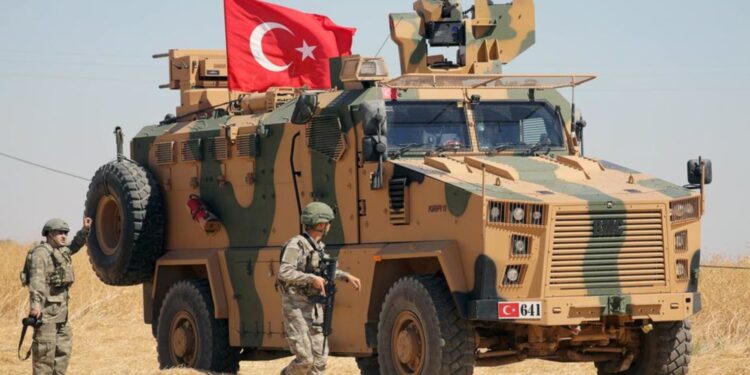On Tuesday, Turkey’s Parliament voted to extend the mandate granting its security forces the authority to conduct cross-border operations in Syria and Iraq for an additional two years. The decision received 357 votes in favor and 164 against in the 600-seat Turkish Parliament, allowing Turkey to deploy troops to Syria and northern Iraq.
This extension follows Turkey’s recent large-scale air offensive in northern Syria, targeting prominent Syrian Kurdish groups. President Erdogan’s ruling coalition largely supported the bill, and some opposition parties, including the nationalist Good Party and liberal-leaning DEVA, also backed it. However, the pro-opposition Republican People’s Party (CHP) and the Pro-Kurdish Green Left Party remained opposed to the extension.
President Erdogan requested this extension due to the “terrorist threats and security risks” posed by “all terrorist organizations in Iraq and Syria.” The mandate, originally enacted in 2014 and extended multiple times, has enabled Turkey to conduct various ground incursions in Syria and Iraq.
This extension comes as Erdogan reiterated his threat to establish a 30-kilometer-deep buffer zone beyond Turkey’s borders with Syria and Iraq in response to a suicide bombing attack on Turkey’s national police headquarters in Ankara on October 1. The outlawed Kurdistan Workers Party (PKK), engaged in a long-standing conflict with Turkish forces seeking self-rule within Turkey since 1984, claimed responsibility for the attack.
In retaliation for the attack, Turkish security forces launched a significant air offensive against northern Syrian areas held by the US-allied Syrian Democratic Forces (SDF). The SDF denied any involvement in the attack and accused Turkey of causing damage to civilian infrastructure, including power grids, water stations, and schools.
Turkey regards the SDF as a threat to its national security, primarily because its backbone, the People’s Protection Units, comprises former PKK militants. Turkey has been pressing the United States to sever its alliance with the Syrian Kurdish-led group, which is a key ally of the US-led international coalition in the fight against the Islamic State.
Following the Ankara attack, Turkey’s Foreign Minister Hakan Fidan declared all infrastructures in SDF-held areas as “legitimate targets” and advised third countries to stay away from these targets, warning the roughly 900 US troops deployed in the region.
The next day, a US F-16 shot down an armed Turkish spy drone as it approached a coalition base in the northern Syrian province of Hasakah, coming as close as 500 meters. The Pentagon described the incident as “regrettable,” while Ankara attributed it to differing technical assessments of the deconfliction mechanism.
This first-ever confrontation between the two NATO allies has strained relations between Ankara and Washington, already under tension due to Turkey’s delay of Sweden’s NATO bid. In response to Turkey’s actions in the region, the White House extended a 2019 national emergency related to Syria, citing concerns about civilian lives and regional peace and security.
Erdogan criticized the extension, asserting that the United States’ actions in Syria represented an “extraordinary threat” to Turkey’s national security and raising questions about the incident with the downed drone. Erdogan stated, “How can you do such a thing? There is a security problem between us.”









